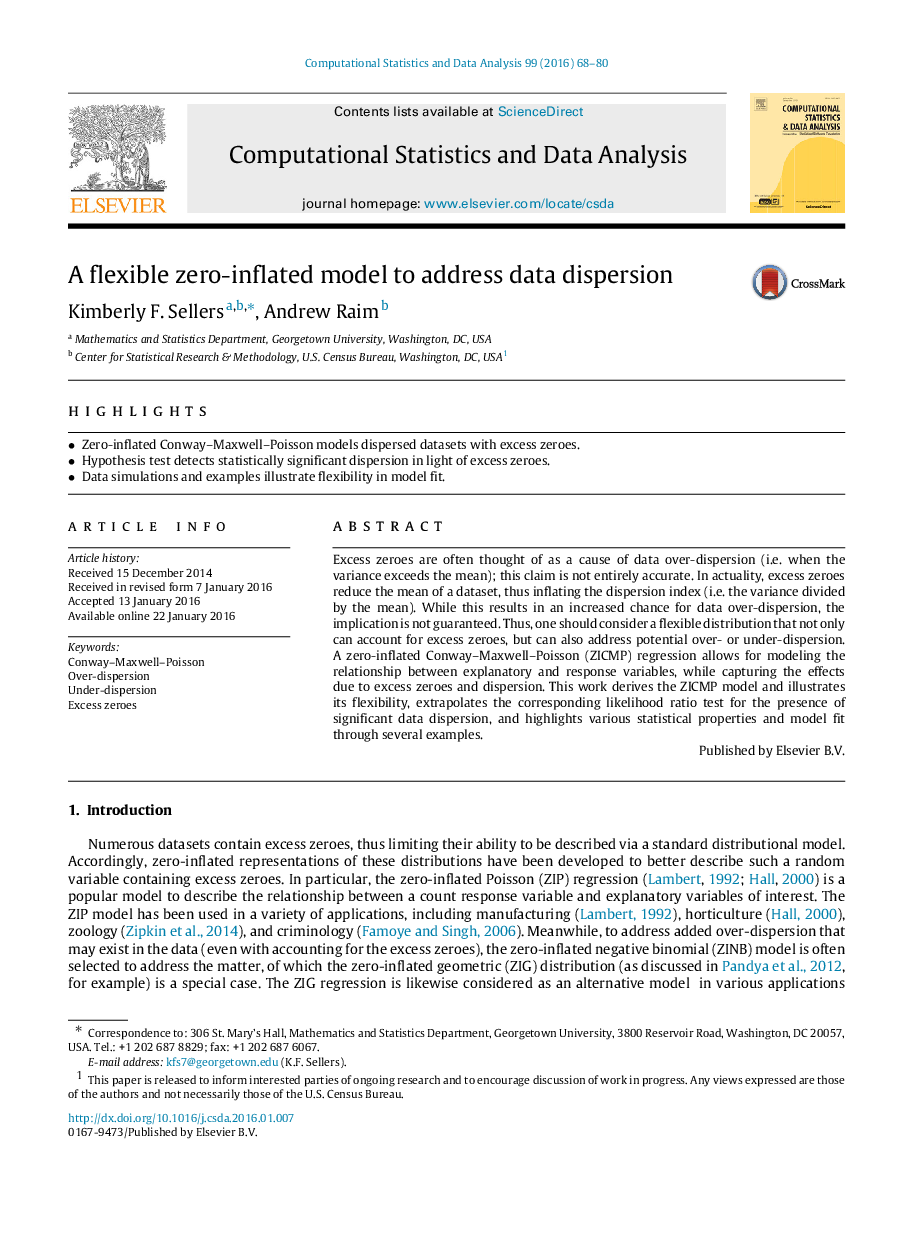| Article ID | Journal | Published Year | Pages | File Type |
|---|---|---|---|---|
| 6869277 | Computational Statistics & Data Analysis | 2016 | 13 Pages |
Abstract
Excess zeroes are often thought of as a cause of data over-dispersion (i.e. when the variance exceeds the mean); this claim is not entirely accurate. In actuality, excess zeroes reduce the mean of a dataset, thus inflating the dispersion index (i.e. the variance divided by the mean). While this results in an increased chance for data over-dispersion, the implication is not guaranteed. Thus, one should consider a flexible distribution that not only can account for excess zeroes, but can also address potential over- or under-dispersion. A zero-inflated Conway-Maxwell-Poisson (ZICMP) regression allows for modeling the relationship between explanatory and response variables, while capturing the effects due to excess zeroes and dispersion. This work derives the ZICMP model and illustrates its flexibility, extrapolates the corresponding likelihood ratio test for the presence of significant data dispersion, and highlights various statistical properties and model fit through several examples.
Keywords
Related Topics
Physical Sciences and Engineering
Computer Science
Computational Theory and Mathematics
Authors
Kimberly F. Sellers, Andrew Raim,
